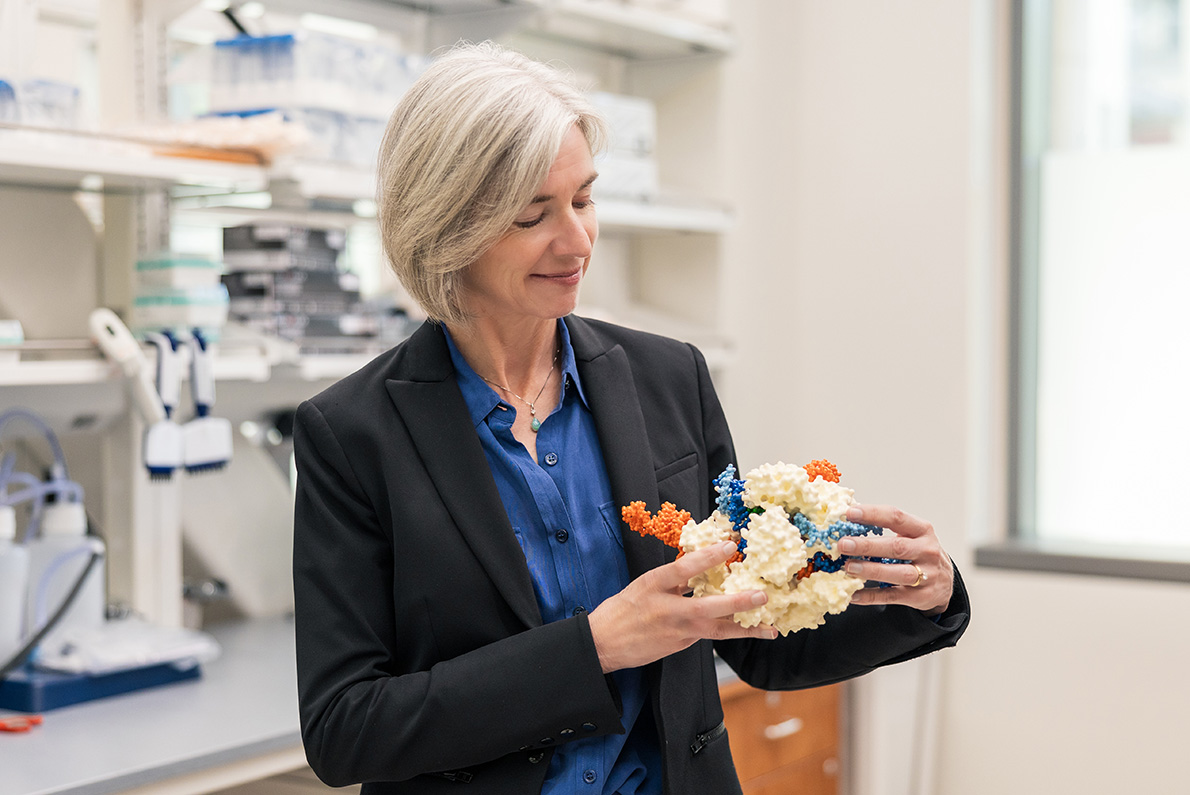Jennifer Doudna has been named the recipient of the 2026 Priestley Medal, the highest honor bestowed by the American Chemical Society (ACS), for her high-impact discoveries on RNA molecules with enzymatic functions, including the development of CRISPR-Cas9 gene editing technology.
Doudna, a faculty scientist in the Molecular Biophysics and Integrated Bioimaging (MBIB) Division, founder of the Innovative Genomics Institute, and a professor at UC Berkeley, previously received the 2020 Nobel Prize in Chemistry and the National Medal of Technology and Innovation for her work on CRISPR-Cas9.
She began studying recently discovered repetitive sequences in bacterial genomes called CRISPR in 2008, using funding from a Department of Energy Laboratory Directed Research and Development (LDRD) Program award. Her worked helped reveal that the repeats are part of a bacterial immune defense system that identifies DNA from invading viruses, then deploys enzymes to cut the DNA and neutralize the pathogens. Building upon findings from this early work and other investigations, in 2012, a team led by Doudna and her co-investigator, Emmanuelle Charpentier, detailed the underlying mechanisms of one of these systems, called CRISPR-Cas9, and explained how it can be programmed to cut any DNA from any organism at a target sequence.
“This revolutionary technology enabled scientists to make precise changes to DNA with unprecedented accuracy and efficiency, fundamentally transforming biology and medicine,” the ACS stated in their release.
Doudna will formally accept the award and deliver an address at the ACS Spring 2026 conference.




